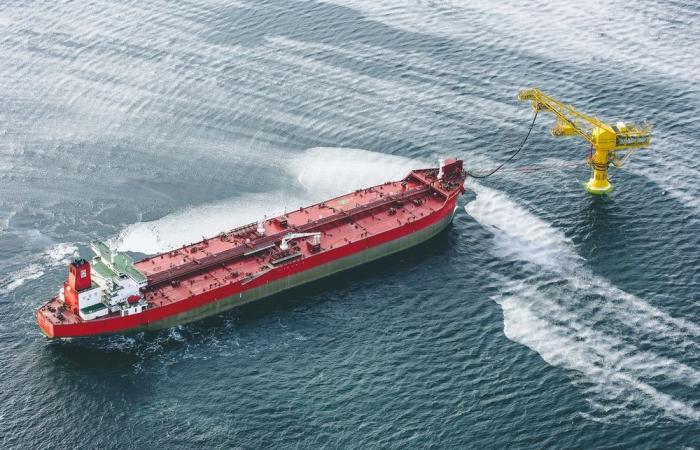Since the start of the invasion of Ukraine, the West has imposed sanctions to increase the cost of the war for Russia. To circumvent these measures, Moscow uses a ghost fleet to export oil. These are foreign-flagged boats that actually work for the Russians.
Oil deals will cost Russia more
The United Kingdom strengthens its sanctions policy by directly targeting the Russian “ghost fleet”a set of tankers operating in an opaque manner in order to circumvent Western sanctions imposeds on Russian oil. In an official statement on the sidelines of the British Expeditionary Force Summit, Prime Minister Keir Starmer announces that 20 additional ships join the sanctions blacklist, bringing the total to more than 100 units. These ships, often aging and registered under dubious foreign flags, allow Russia to maintain its oil exports despite international restrictions, thus providing a crucial financial contribution to continue its war in Ukraine.
The ghost fleet consists of tankers that operate outside international maritime standards. These ships, often without adequate insurance, transit under flags of convenience, which complicates their traceability and regulation. This stratagem allows Moscow to generate money for its war effort, even though Western restrictions aim precisely to reduce its cash inflows.
Coordination between the United Kingdom and several countries bordering the Baltic Sea, such as Denmark, Sweden and Poland, is intensifying to stem this phenomenon. From now on, these nations will systematically require proof of insurance for ships suspected of belonging to this fleet. In Estonia, for example, more than 200 inspections have been carried out.
A major environmental threat
In addition to the financial and strategic aspect, the ghost fleet poses a significant environmental risk. The Baltic Sea, already weakened, could suffer catastrophic consequences in the event of an oil leak or spill. Faced with this threat, twelve countries bordering the Baltic Sea and the North Sea announce their intention to increase controls.
In parallel with these sanctions, London reveals aid of 35 million pounds (42 million euros) intended to support Ukrainewhose energy infrastructure is seriously damaged by Russian attacks. This support will be split between 20 million pounds for critical repairs to Ukraine’s electricity network and 15 million for humanitarian aid, including generators and thermal kits for civilians.
A reaction? Leave a comment
Did you like this article? Subscribe to our free newsletter for engaging articles, exclusive content and the latest news.






